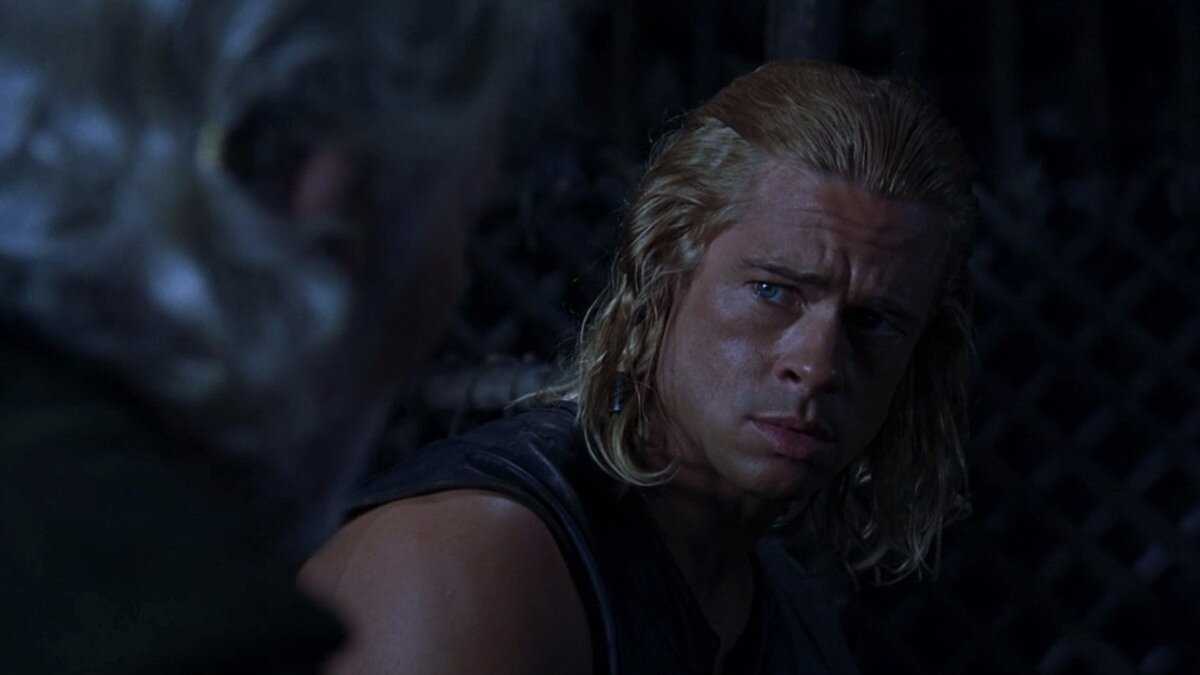
The movie Troy, directed by Wolfgang Petersen, is a cinematic masterpiece that tells the story of the Trojan War. Released in 2004, the film presents a fictionalized account of the legendary conflict that took place between the Greeks and Trojans. With its epic battles, intricate plot, and stellar cast, Troy has captivated audiences around the world. However, as with any historical adaptation, there are bound to be questions about the accuracy of certain aspects of the film.
One of the most frequently asked questions about Troy is whether it is based on a true story. While the film draws inspiration from the works of Homer, namely the Iliad, it is important to note that the events depicted in Troy are largely fictionalized. The Trojan War, as described in ancient texts, is steeped in myth and legend, making it difficult to discern fact from fiction. Nonetheless, Troy attempts to recreate the atmosphere and spirit of the ancient conflict, while also adding its own unique elements to enhance the storytelling.
Another common question surrounding Troy is the casting of the film. Some viewers have expressed concern over the choice of actors to portray the ancient Greek and Trojan characters. Brad Pitt takes on the role of the legendary Greek hero, Achilles, while Eric Bana portrays the Trojan prince, Hector. While there may be some discrepancies in terms of physical appearance, the performances delivered by the cast members are highly regarded and contribute to the overall quality of the film.
Troy Movie Questions and Answers
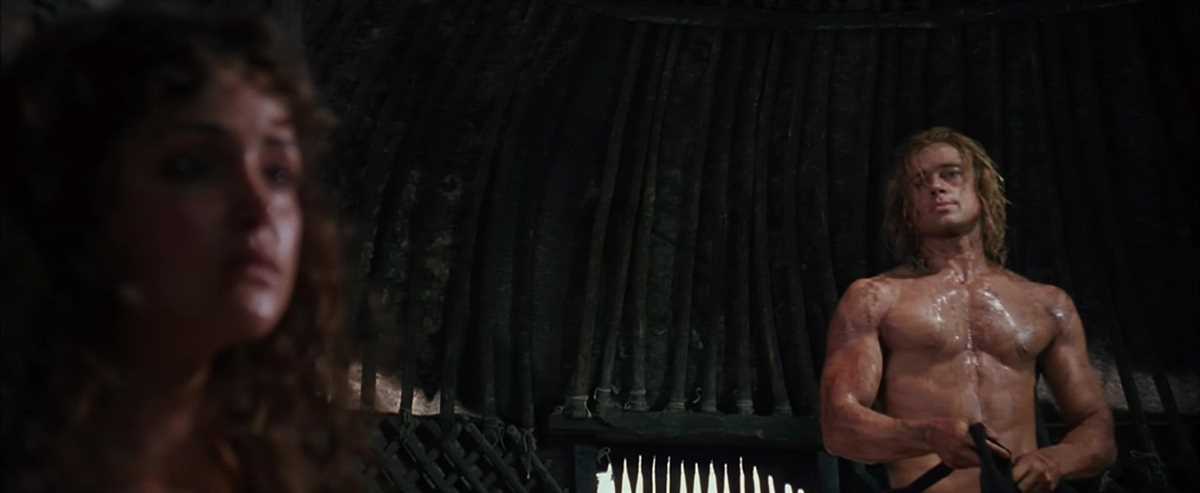
The movie Troy, directed by Wolfgang Petersen, is a historical epic based on the Greek mythological tale of the Trojan War. It depicts the famous conflict between the Greeks and the Trojans over Helen, the wife of Menelaus, who was abducted by Paris, the prince of Troy. The movie is known for its stunning visuals, intense battle scenes, and a star-studded cast including Brad Pitt as Achilles, Eric Bana as Hector, and Orlando Bloom as Paris.
Below are some frequently asked questions about the movie Troy along with their answers:
Q: Is the movie Troy based on a true story?
A: The story of the Trojan War, on which the movie Troy is based, is a mythological tale that has been passed down through the ages. While there is no historical evidence to prove the existence of Troy or the events depicted in the movie, it has become an important part of Greek mythology and has inspired countless works of literature and art.
Q: How accurate is the movie Troy in terms of historical events?
A: The movie Troy takes certain liberties with the original myth and historical events. For example, the portrayal of Achilles as a nearly invincible warrior is exaggerated, and the timeline of the war is condensed for the purpose of the movie. However, the movie does capture the essence of the Trojan War and presents an epic tale of honor, love, and tragedy.
Q: What are some of the key themes explored in the movie Troy?
A: The movie Troy explores themes such as the consequences of pride, the futility of war, and the power of love. It delves into the complex relationships between the characters and the choices they make in the face of overwhelming odds. The movie also raises questions about the nature of heroism and the cost of achieving glory.
Q: What is the significance of the character Achilles in the movie Troy?
A: Achilles is portrayed as a legendary warrior whose only vulnerability is his heel. He represents the epitome of Greek heroism and embodies the ideals of honor and valor. His internal conflict between his desire for personal glory and his loyalty to his comrades is a central theme in the movie. Achilles’ actions and ultimate demise have a profound impact on the outcome of the war.
In conclusion, the movie Troy offers a cinematic interpretation of the mythical Trojan War. While it may not be historically accurate in every aspect, it captures the essence of the story and explores timeless themes that continue to resonate with audiences. Whether you are a fan of Greek mythology or simply enjoy epic battles and dramatic storytelling, Troy is a movie worth watching.
Plot Overview
The movie “Troy” is a 2004 epic war film directed by Wolfgang Petersen. It is based on the ancient Greek poem “The Iliad” by Homer and tells the story of the legendary Trojan War. The plot revolves around the conflict between the kingdoms of Troy and Sparta, and the love affair between Paris, a prince of Troy, and Helen, the wife of King Menelaus of Sparta.
The movie begins with the arrival of Paris in Sparta, where he falls in love with Helen and takes her back to Troy, sparking the war. King Menelaus seeks the help of his brother, King Agamemnon, and together they gather an army of Greek warriors to lay siege to Troy and retrieve Helen. Achilles, a legendary warrior, is the most skilled fighter among the Greeks. He initially refuses to fight for Agamemnon but eventually agrees when his honor is threatened.
In the ensuing battles, the Greeks face various challenges, including the Trojan Prince Hector, who proves to be a formidable adversary. Achilles engages in a personal feud with Hector and eventually kills him, but not before being injured himself. The Trojans mourn the loss of their prince, but still refuse to surrender.
As the war continues, both sides suffer heavy losses, and tensions rise between Achilles and Agamemnon. The Trojans get a glimmer of hope when they discover a weakness in the Greek camp and launch a daring nighttime attack. However, Achilles, driven by revenge for the death of his friend Patroclus, joins the battle and helps the Greeks repel the Trojan assault.
In the final showdown, the Greeks come up with a bold plan to infiltrate Troy using a wooden horse filled with Greek soldiers. The Trojans, believing it to be a gift, bring the horse inside the city walls. At night, the Greek soldiers emerge from the horse and open the gates for the rest of the Greek army. In the chaos that ensues, Troy is sacked and burned.
The movie concludes with the funeral of Hector and the departure of the surviving Trojans, while Achilles is honored for his bravery but ultimately meets his demise from an arrow shot by Paris. The film leaves the audience with a sense of the tragic nature of war and the consequences of human pride and ambition.
Historical accuracy is often a topic of discussion when it comes to movies based on historical events, and the movie Troy is no exception. While the film attempts to portray the legendary Trojan War, there are several aspects that deviate from historical accounts.
One major departure from history is the inclusion of mythical elements in the movie. For example, the gods play a prominent role in the story, influencing the actions of the characters. In reality, the Trojan War is believed to be a historical event that took place around the 12th or 13th century BCE, with no divine intervention. While the inclusion of mythical elements adds an intriguing and dramatic aspect to the movie, it does not accurately reflect the historical events.
Another notable deviation from historical accuracy is the portrayal of the characters and their relationships. In the film, the character of Achilles is depicted as a heroic and almost invincible warrior, while in historical accounts he was likely a skilled warrior but not superhuman. Additionally, the romantic relationship between Achilles and Briseis is portrayed in the movie, but there is limited historical evidence to support such a romantic involvement.
- There are also some discrepancies in the portrayal of the Trojan War itself. For example, the movie depicts the Greeks using giant wooden horse to infiltrate and defeat Troy, while historical accounts suggest that the Greeks may have used a different strategy to breach the city walls.
- Overall, while Troy provides an entertaining and visually stunning depiction of the Trojan War, it should be understood that it is a work of fiction and should not be taken as a completely accurate representation of historical events.
Characters
The movie “Troy” features a diverse cast of characters, each with their own unique roles and personalities. These characters play a crucial role in the story and its development, allowing viewers to connect with and understand the various perspectives and motivations that drive the events of the film.
The main protagonist of the movie is Achilles, portrayed by actor Brad Pitt. Achilles is a legendary warrior known for his strength and skill in battle. He is fiercely loyal to his comrades and seeks glory on the battlefield. Achilles’ internal conflict between his desire for honor and his personal relationships shapes much of the story.
Paris, played by actor Orlando Bloom, is another central character in the film. He is the Prince of Troy and his actions spark the ten-year-long war between the Greeks and the Trojans. Paris is depicted as a romantic and naive young man who falls in love with Helen, the Queen of Sparta, played by actress Diane Kruger. Their forbidden love sets off a chain of events that leads to the epic battle.
Other notable characters in the movie include Hector, the noble prince of Troy and Achilles’ rival, portrayed by actor Eric Bana, and King Agamemnon, the Greek leader played by actor Brian Cox. These characters have their own personal agendas and contribute to the tension and conflict that drive the narrative of the film.
- Achilles: Protagonist and legendary warrior, played by Brad Pitt.
- Paris: Prince of Troy, played by Orlando Bloom.
- Hector: Noble prince of Troy and Achilles’ rival, played by Eric Bana.
- King Agamemnon: Greek leader, played by Brian Cox.
- Helen: Queen of Sparta, played by Diane Kruger.
These characters, along with many others, bring the epic story of “Troy” to life, showcasing the complexities of human nature and the consequences of pride and war. Through their actions and interactions, the audience is taken on a thrilling journey filled with emotion, conflict, and ultimately, the destruction of a city.
Filming Locations
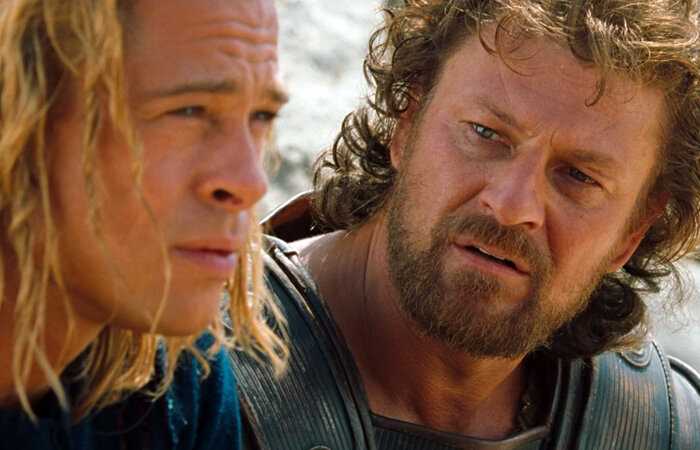
The epic film “Troy” was filmed in various locations around the world, creating a visually stunning portrayal of the ancient city and its surrounding landscapes. The filmmakers utilized a combination of real-life locations and intricate sets to bring the story to life.
One of the main shooting locations for “Troy” was in Malta. The island nation provided the perfect backdrop for the ancient city of Troy, with its rich history and diverse architecture. The production team constructed a massive set that replicated the legendary city, complete with towering walls, grand palaces, and bustling streets. Malta’s picturesque landscapes also served as the setting for the film’s memorable battle scenes and sweeping vistas.
Other filming locations include:
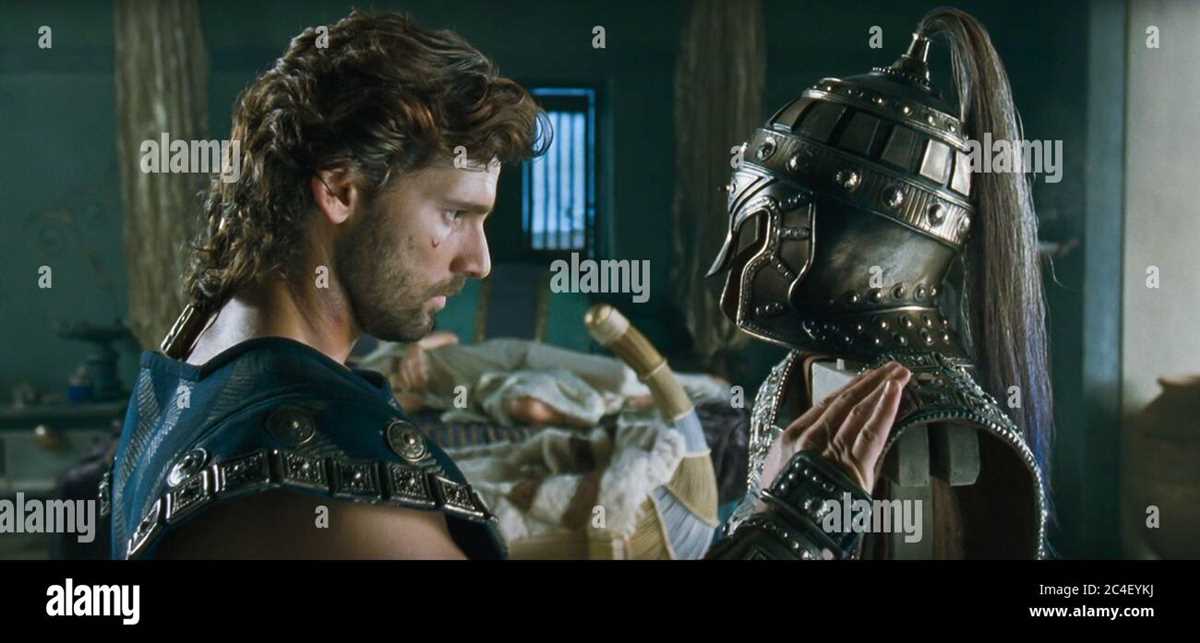
- Mexico – The stunning Yucatan Peninsula was used to film the scenes set in Greece, providing a lush and vibrant setting for the characters’ adventures.
- England – Various locations across England were utilized, including the historic city of Bath, which served as the backdrop for some of the film’s more intimate and character-driven scenes.
- Morocco – The majestic deserts of Morocco provided the perfect setting for the film’s desert sequences, including the iconic battle between Achilles and Hector.
- Maldives – The pristine white beaches and crystal-clear waters of the Maldives were utilized for the film’s idyllic scenes set on the shores of Troy.
Through the skillful combination of real-life locations and meticulously crafted sets, the filmmakers were able to transport audiences to the ancient world of Troy, showcasing the grandeur and beauty of the city and its surroundings.
Reception and Reviews
Troy, released in 2004, received a mixed reception from critics and audiences alike. While the film was praised for its epic scale, stunning visuals, and impressive battle sequences, it was also criticized for its inaccuracies in portraying the original mythological story of the Trojan War and for its lack of depth in character development.
Despite its flaws, Troy managed to captivate audiences with its grandiose set pieces and action-packed scenes. The film’s visual effects were especially praised for their realistic depiction of ancient warfare and the destruction of the city of Troy. The battle sequences, choreographed by renowned stunt coordinator Simon Crane, were particularly impressive, showcasing the brutality and chaos of war.
However, critics pointed out that Troy failed to fully explore the complex motivations and relationships of its characters. The central love triangle between Achilles, Hector, and Helen was criticized for lacking emotional depth and complexity. Additionally, the character of Achilles, played by Brad Pitt, was seen as one-dimensional and lacking the depth and complexity that is often associated with Greek heroes.
Despite its flaws, Troy remains a visually striking and entertaining film that manages to capture the grandeur and brutality of ancient warfare. While it may not be a faithful adaptation of the original myth, it is still an exciting and action-packed epic that leaves a lasting impression.
Impact and Legacy
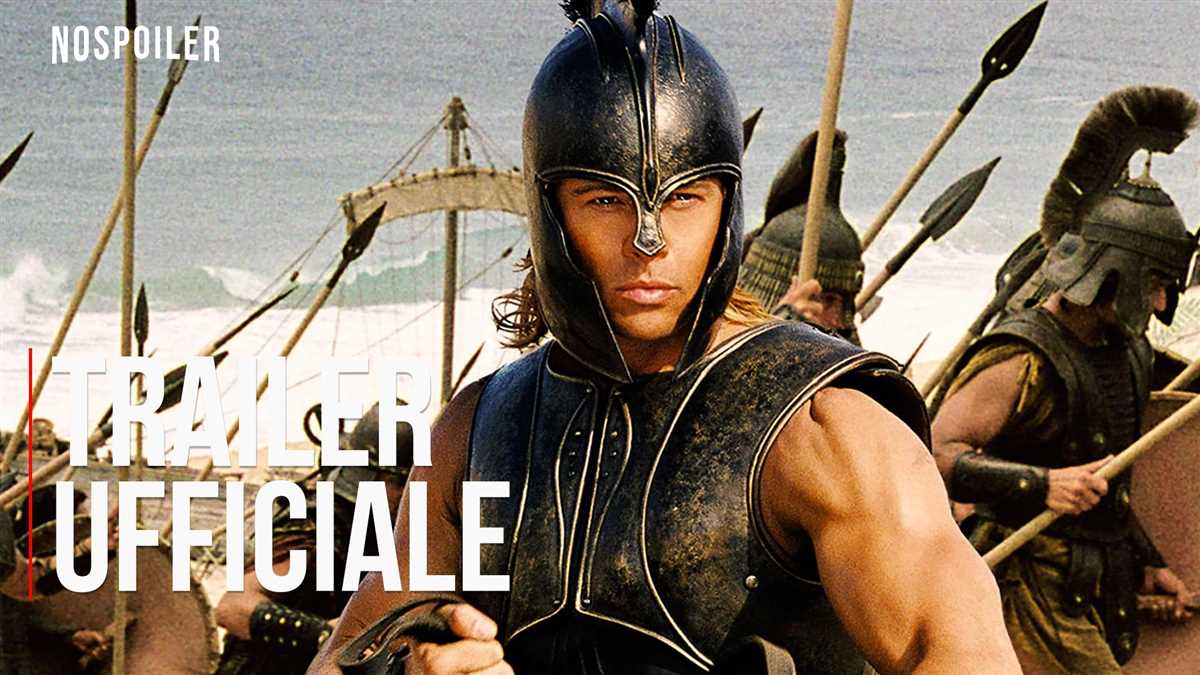
The impact of the movie “Troy” when it was released in 2004 was significant. It brought the story of Homer’s epic poem to a modern audience and introduced them to the legendary characters and events of the Trojan War. The film’s impressive visuals, intense battle scenes, and star-studded cast drew both fans of historical dramas and action-packed movies.
“Troy” also had a lasting legacy on the film industry. It paved the way for other historical and mythological adaptations, inspiring filmmakers to explore similar themes and stories. It set the standard for grand-scale productions and epic battle sequences, influencing future movies in the genre. Additionally, the film’s success helped establish its director, Wolfgang Petersen, as a prominent figure in the industry.
Furthermore, “Troy” sparked renewed interest in the ancient city of Troy and the mythology surrounding it. It prompted viewers to dive deeper into the historicity of the Trojan War and sparked discussions about the accuracy of the film’s portrayal. The movie also led to an increase in tourism to Turkey, where the ruins of Troy are located, as fans sought to visit the legendary city for themselves.
In conclusion, the movie “Troy” had a significant impact upon its release and left a lasting legacy. It brought the story of the Trojan War to a wider audience, influenced future films in the genre, and sparked interest in the history and mythology of Troy. Despite some criticism regarding its historical accuracy, “Troy” remains a memorable and influential film in the realm of historical and mythological adaptations.